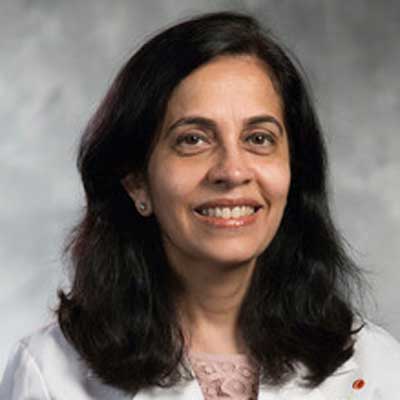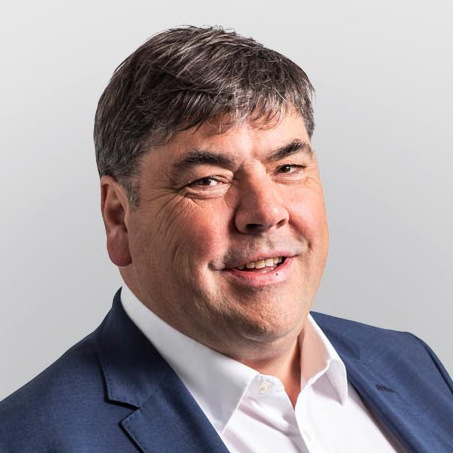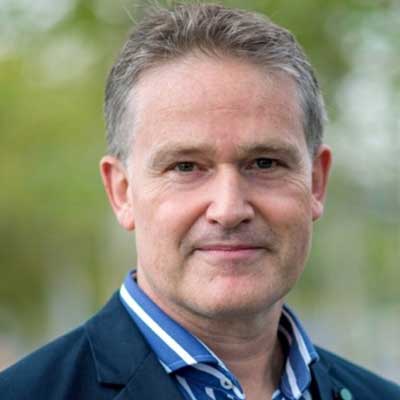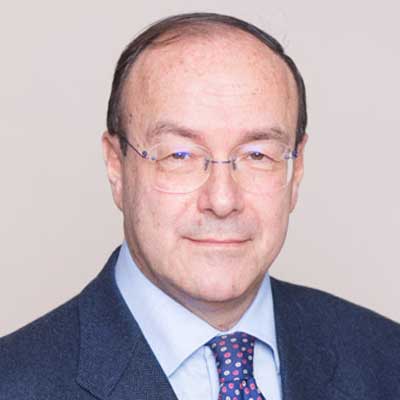Faculty
Course Director

Priya S. Kishnani, MD
C.L. and Su Chen Professor of Pediatrics
Medical Director, YT and Alice Chen Pediatrics
Genetics and Genomics Center
Division Chief, Medical Genetics
Professor of Molecular Genetics and Microbiology
Duke University Medical Center
Durham, NC
Throughout her career, Dr. Kishnani’s clinical and research efforts have focused on enhancing the continuity of care for individuals with rare and chronic genetic conditions using a multidisciplinary team approach, with an overarching goal of translational therapeutic development. Her passion is to establish the highest quality of care and treatment by understanding the emerging natural history of individuals through investigator-initiated studies and clinical research trials with a focus on glycogen and lysosomal storage disorders. She has extensively published her work on these conditions, their long-term complications, the development of treatment strategies, and long-term outcomes of treatment in clinical trials in various research publications, textbooks, and scientific reviews.
Dr. Kishnani has served a pivotal role in the development of treatments for Pompe disease (PD)—most notably first- and second-generation enzyme replacement therapy (ERT). Based on her research and clinical experience with PD, she has identified several factors that influence medical and developmental outcomes for patients, including early initiation of ERT and the extent of muscle involvement when ERT is initiated. Dr. Kishnani’s group also has been responsible for the development and validation of a reliable blood-based assay for measurement of acid alfa glucosidase using dried blood spots and is currently working to add PD to newborn screening panels nationwide. The success she has achieved in treating PD has set the stage for treatment approaches for other neuromuscular diseases, including spinal muscular atrophy and Duchenne muscular dystrophy, and for the development of a clinical consortium of neurology experts.
Course Faculty

Mark Roberts, BSc, MBChB, FRCP, MD
Consultant Neurologist
Greater Manchester Neurosciences Unit
Salford Royal NHS Foundation Trust
Salford, United Kingdom
Mark Roberts, BSc, MBChB, FRCP, MD is a Consultant Neurologist with expertise in more common and rare disorders.
He works closely with other disciplines through joint and transition multidisciplinary clinics including metabolic medicine, rheumatology and ventilatory support.
He is the Manchester Lead on the North West Neuromuscular Network, awarded Network of Excellence in 2017, the Neuromuscular Lead at The Manchester Centre for Clinical Neurosciences, and the Research Lead for Metabolic Medicine.
He has worked in the Pompe field for over 20 years and is a board member of The European Pompe Consortium and The International Pompe Registry and has been an investigator in Clinical Trials of new enzyme replacement therapies.

Professor Dr. med. Benedikt Schoser, FEAN
Friedrich Baur Institute
Neurological Clinic and Polyclinic
LMU Clinic
Ludwig-Maximilians-University Munich

Antonio Toscano, MD
Professor of Neurology
Department of Clinical and Experimental Medicine
University Of Messina
Messina, Italy
His scientific activity has been primarily in neurogenetic diseases with specific reference to neuromuscular and neurodegenerative disorders. He is particularly dedicated to the diagnosis, management, and treatment of metabolic myopathies as muscle glycogenoses (with particular interest in glycogenosis type II, Pompe disease); lipid storage myopathies and mitochondrial disorders; genetic myopathies (limb-girdle syndromes, distal myopathies, channelopathies, cardiomyopathies, and congenital myasthenia); peripheral neuropathies (particularly, dysimmune and genetic neuropathies); and neurodegenerative diseases (ie, cerebellar ataxias and spastic paraparesis). He has also authored more than 160 publications in indexed journals.